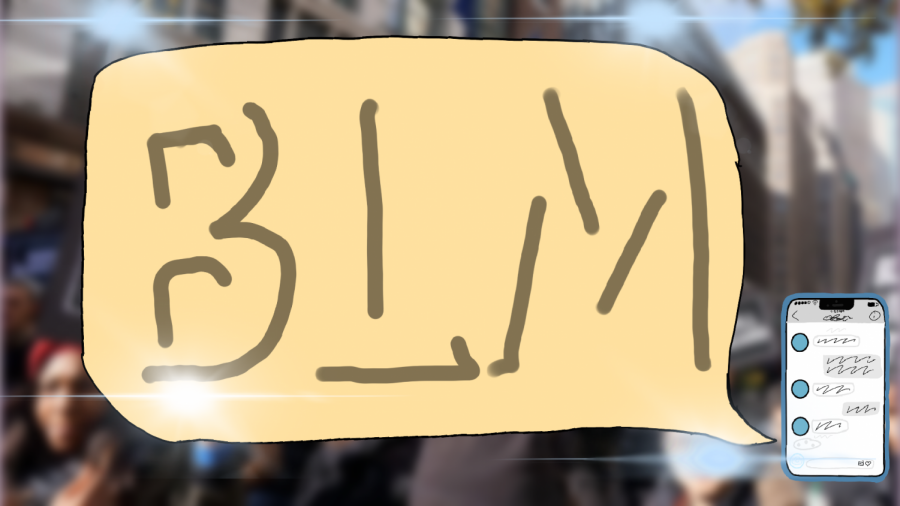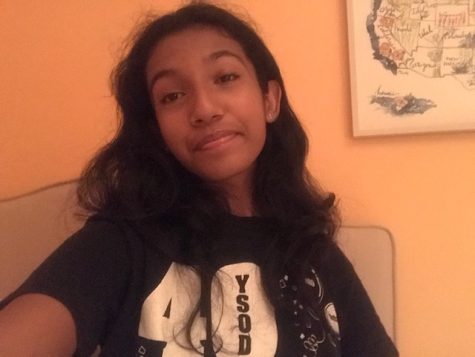Black Lives Matter, but Not Because Charli Posted About It…
November 19, 2021
Black Lives Matter (BLM) is a movement that originally started in 2013 and gained traction in 2020 subsequent to the killing of George Floyd in May of that year. Floyd died under the chokehold of a police officer and his killing led to the widespread use of the slogan “I can’t breathe” everywhere—online, on posters, and even on merchandise—to protest police brutality.
Although BLM existed prior to Floyd’s passing, the movement spread rapidly, reaching millions of people on social media platforms such as Instagram, Twitter, and TikTok. “#BlackoutTuesday” on June 2nd, 2020 allowed digital activists to spread awareness of racism, but this turned into a trend and trivialized the movement. Many people felt they were effectively bringing change by participating, but they were simply making it harder for real activists to use their platforms.
Digital activism is the modern world’s way of supporting social causes through the various platforms that are available online. Compared to non-digital activism, digital activism is more able to reach an incredibly large and diverse audience. Nonetheless, some self-proclaimed supporters only make minimal contributions towards bringing positive change. The dilemma people face is whether to engage in activism out of conformity or genuine belief.
Herd mentality is far too common with digital activism since people tend to conform to trends to gain followers and fit their social media brand. Famous TikTok influencer Charli D’Amelio currently has the text “Black Lives Matter” as her profile picture, yet she has been receiving comments from her fans stating the movement has apparently concluded even when racial injustice is still an ongoing problem.
Not only have social media users downplayed BLM, but Pride Month has similarly been victim to the trendification of activism. Facebook, like several other social media companies, changed its logo during June of 2021 to fit the rainbow theme of the pride flag. However, following the end of Pride Month, Facebook and other companies removed their rainbow logo and returned to the status quo.
No substantive change happened; their activism was merely performative.
It’s true that performative activism is at least an indicator of social progress—after all, people at least feel pressure to appear to support social causes such as BLM—but genuine activism is necessary to truly enact social progress. Companies are simply supporting causes to avoid criticism and present their brand as open-minded and liberal to appeal to millennials and Generation Z, both groups who are a large portion of the consumer market.
However, not all companies and social media accounts follow the herd mentality. Twitter account @blklivesmatter consistently spreads awareness by posting meaningful tweets regarding the BLM movement. They are not following a mere trend but are working to highlight any progress that is being made to bring change to this racial issue. This is a form of digital activism being used correctly, yet this is not seen in the majority of mainstream media.
Throughout the past year, examples of the trendification of activism have been abundant. The truth is, a single post about the recently prevalent Stop Asian Hate movement might be able to reach a large audience but will not make the poster a true activist, nor a proper supporter. Influencers are not causing tangible change by changing their profile pictures on Tik Tok to the same BLM image. Companies are not making the LGBTQ+ community feel included by adding colors to their logos for a month.
People are not being changed.
Undeniably, performative activism trumps no activism at all, but it fails to address deeper aspects of racial injustice. Racist influencers are still extremely popular because they are hiding behind a facade of false supportive acts, and companies are still discriminating against minorities in the workplace.
Considering how widespread social media use is amongst the EHS student body, the case of Charli D’Amelio reminds us to promote social causes because we believe in them, not for internet points, which ultimately cheapens attempted acts of good-doing.

























































































